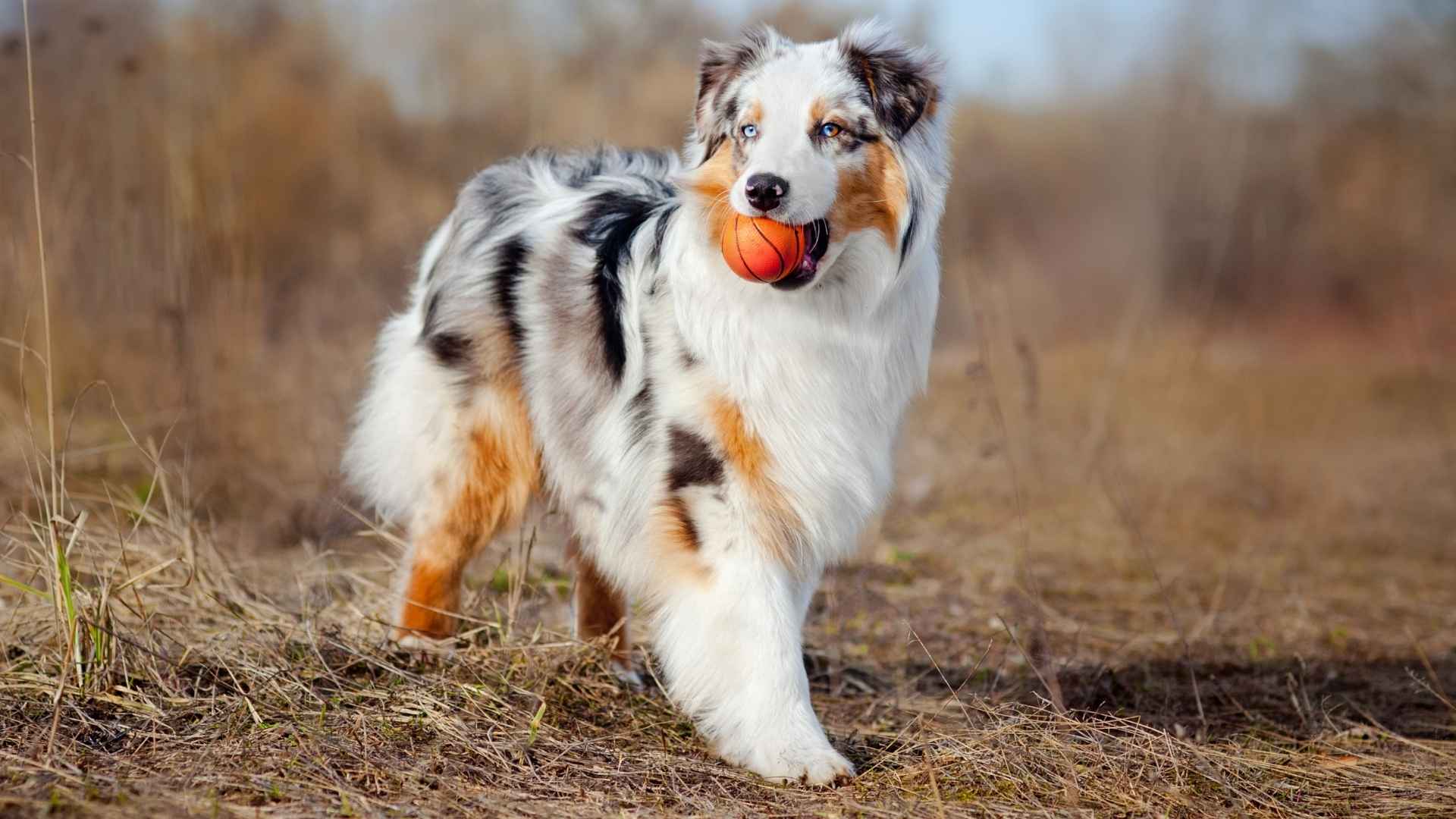Ever feel like your dog is half genius, half couch potato? You’re not alone. While some breeds crave endless challenges, others only occasionally need mental stimulation to stay happy. These breeds strike a sweet balance; they’re smart enough to enjoy a brain teaser, but they’re also perfectly content with some downtime and a chew toy.
In a world where many dog owners juggle busy workdays and social lives, breeds with more flexible mental engagement needs are rising in popularity. They won’t redecorate your living room out of boredom, but they still enjoy a puzzle game or interactive toy now and then. These dogs love a bit of fun without being always on, making them ideal for families, seniors, or anyone looking for a more adaptable canine companion.
Whether you’re curious about your next furry best friend or just love learning about different dog personalities, you’ll find these breeds refreshingly laid-back and endearingly clever. Let’s dive in and explore which breeds strike the perfect balance of chill and challenge.
Occasionally Needs Mental Engagement Dog Breeds
1. Border Collie
Beneath the Border Collie’s soft, expressive eyes lies a razor-sharp mind that thrives on purpose. Originally bred for herding sheep across rugged terrain, this breed boasts an extraordinary ability to read cues, solve problems, and stay several steps ahead; traits that make mental stimulation more of a requirement than a luxury. Yet, despite its working-dog pedigree, the Border Collie can fare quite well with just occasional mental engagement when supported by an active, attentive owner.
The key with Border Collies is variety. They don’t need to run obstacle courses every day, but they do appreciate switching up activities. Whether it’s a puzzle toy one day or a game of fetch with tricky commands the next, novelty keeps them content. Structured downtime is equally important; these dogs excel when they’re given rest alongside bursts of meaningful interaction.
Physically, they’re agile and responsive, often excelling in sports like flyball or disc competitions. But their intelligence isn’t just for show; left bored for too long, a Border Collie can invent its own challenges (like digging or herding your furniture). That’s why even short but focused tasks, such as learning a new trick, go a long way.
They also have a gentle side. Their loyalty, attentiveness, and easy trainability make them a favorite among families, especially those willing to participate in their intellectual adventures. With proper guidance, even first-time owners can tap into this breed’s brilliance.
So while they’re not high-strung every minute, Border Collies do best in environments that encourage curiosity without overwhelming schedules. A little daily challenge, some structure, and room to be clever—that’s the winning formula.
2. German Shepherd
German Shepherds are world-renowned for their versatility, and for good reason. Whether they’re assisting law enforcement, herding sheep, or simply being a loyal family companion, these dogs thrive when given structure and purpose. Their intelligence ranks among the top three dog breeds, which means they learn quickly and love being mentally challenged, but they don’t require constant stimulation like more obsessive working breeds.
That said, this breed certainly enjoys a good brain teaser. Puzzle toys, agility drills, and advanced obedience sessions keep their minds sharp and focused. While they aren’t the type to demand mental activity every hour, they do best with regular opportunities to problem-solve and engage. It’s in their nature to work, so channeling that instinct, even just a few times a week, goes a long way in preventing restlessness.
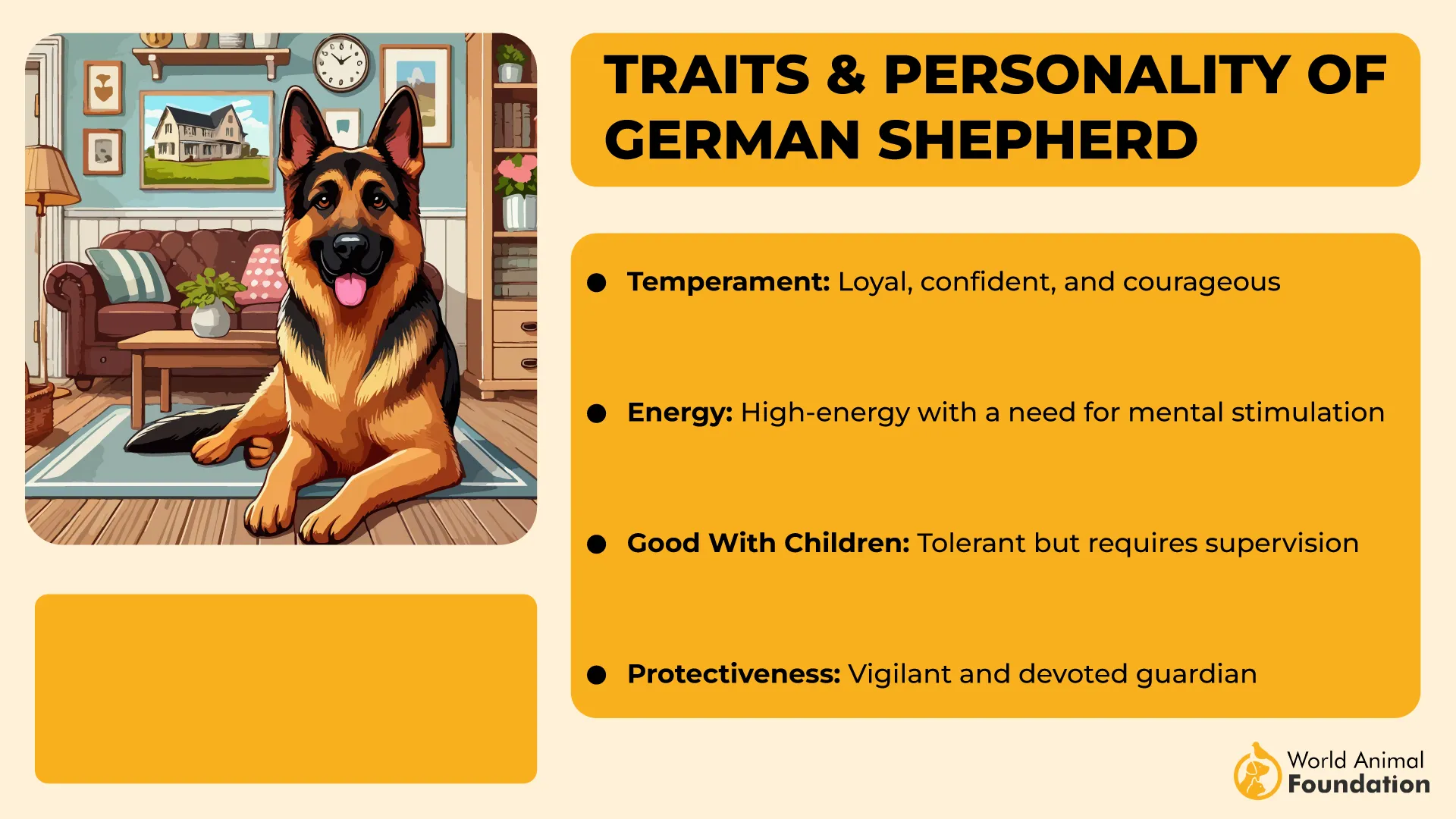
Physically, these dogs are a powerhouse of strength and stamina. Daily walks and play sessions are essential, and longer excursions like hikes or scent-tracking games are ideal outlets. Thanks to their adaptable temperament, they can adjust to family life as long as their energy is given a proper outlet, both physical and mental.
Consistency is crucial. German Shepherds respond best to structured routines and clear communication. They’re eager to please but may develop undesirable behaviors like excessive barking or protectiveness if not guided properly from an early age.
Ultimately, the German Shepherd is a fantastic choice for families seeking an intelligent, affectionate dog that occasionally craves mental stimulation. With the right balance of challenge and downtime, they become both reliable workers and devoted companions.
3. Australian Shepherd
The Australian Shepherd is the canine equivalent of a multitasking marvel; alert, agile, and endlessly curious. Originally bred to herd livestock across rugged terrain, this breed combines energy and intelligence in spades. While Aussies can relax with the family, they thrive when given tasks that challenge both body and mind, even if it’s just learning a new trick or solving a treat puzzle. Their natural drive means they’re not suited to long hours of idle lounging.
Despite their lively spirit, Australian Shepherds don’t demand constant stimulation like some high-strung breeds. Instead, they flourish with moderate mental engagement. A few sessions of obedience training, interactive toys, or agility practice each week can do wonders to keep their clever minds occupied. Their eagerness to learn makes them a joy to train, and they’re known for picking up commands faster than you can say “sit.”
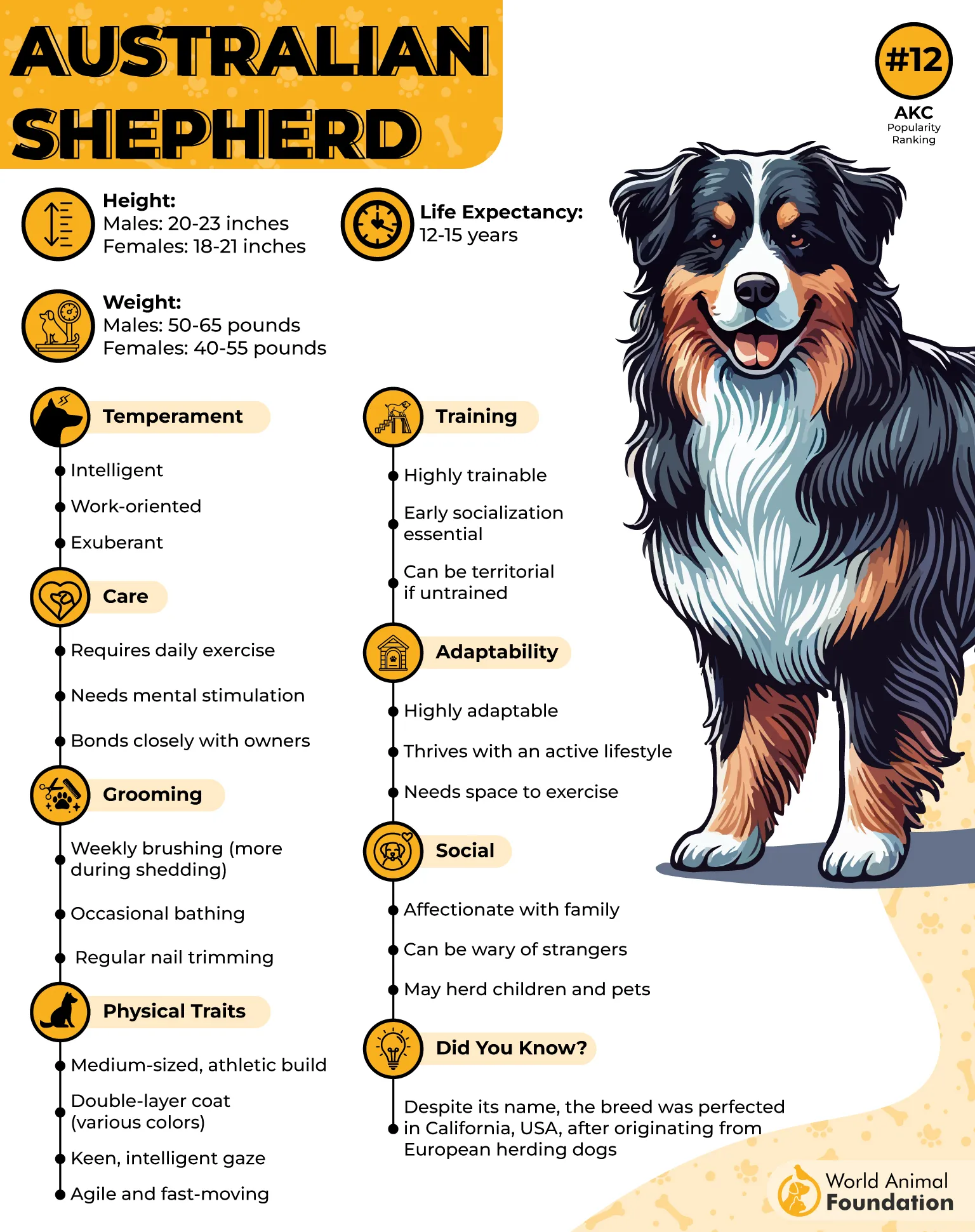
Beyond their brains, Aussies are loyal companions who form strong bonds with their humans. They tend to be protective but not aggressive, offering a balanced temperament that suits active families and experienced dog owners. Socialization early on helps curb their cautious nature around strangers and channel their focus into more productive outlets.
Grooming-wise, they’re fairly low-maintenance, though their double coat does shed year-round. Regular brushing keeps things manageable. And while they do enjoy downtime, don’t mistake an Aussie’s nap for laziness—they’ll be raring to go the moment you grab a leash or toss a ball.
Ideal for owners who appreciate a dog that’s both fun and functional, the Australian Shepherd fits right in with lifestyles that offer just enough stimulation to keep things interesting, but not overwhelming.
4. Labrador Retriever

There’s a reason Labrador Retrievers have earned their place as one of the most beloved dog breeds; they’re friendly and active, as per PetMD. These sociable pups blend seamlessly into households of all kinds, and while they have a zest for life that’s hard to match, they don’t require constant mental workouts to thrive. Instead, Labs are content with a good balance of companionship, light training, and occasional mental stimulation.
Unlike high-drive working breeds that crave jobs around the clock, Labradors can happily enjoy life without an endless stream of puzzles or obedience drills. That doesn’t mean they don’t appreciate a brain teaser now and then—treat-dispensing toys or a game of fetch with a twist are more than enough to keep them happily engaged. Their intelligence is undeniable, but it’s tempered by an easy-going nature that makes them wonderfully manageable.
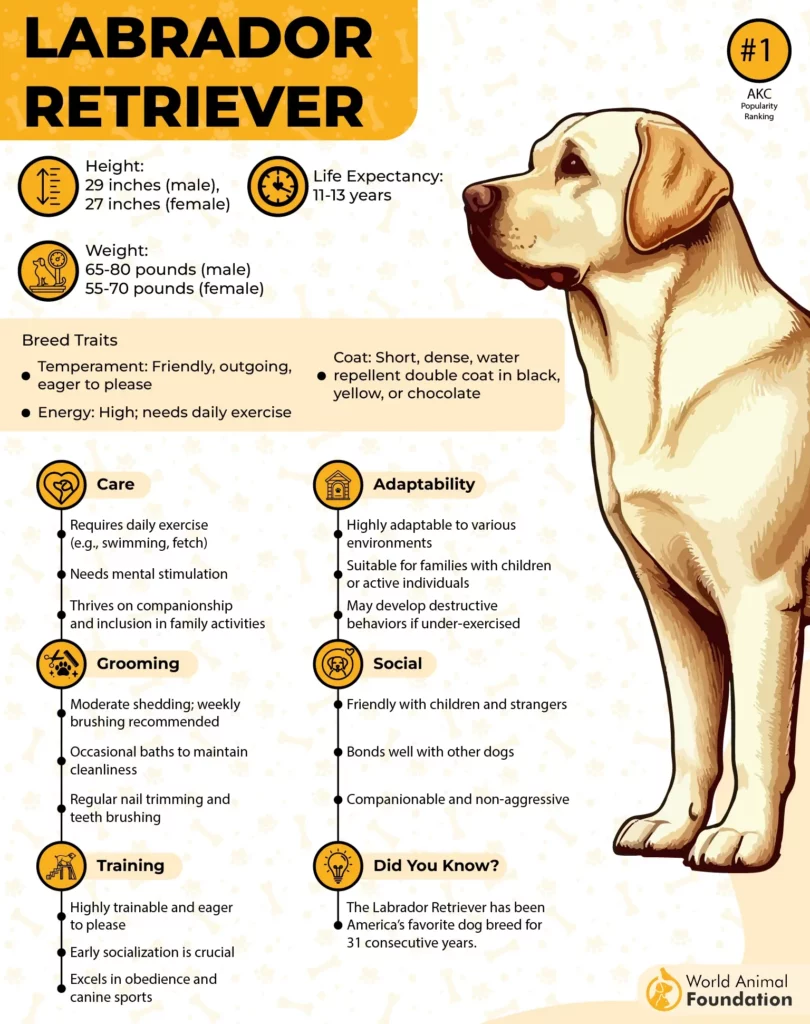
These dogs truly shine in the family environment. Their adorable demeanor and innate patience make them excellent with children, and their eagerness to please means they respond well to basic training. Labs are also known to be reliable around other pets, especially when introduced early and positively.
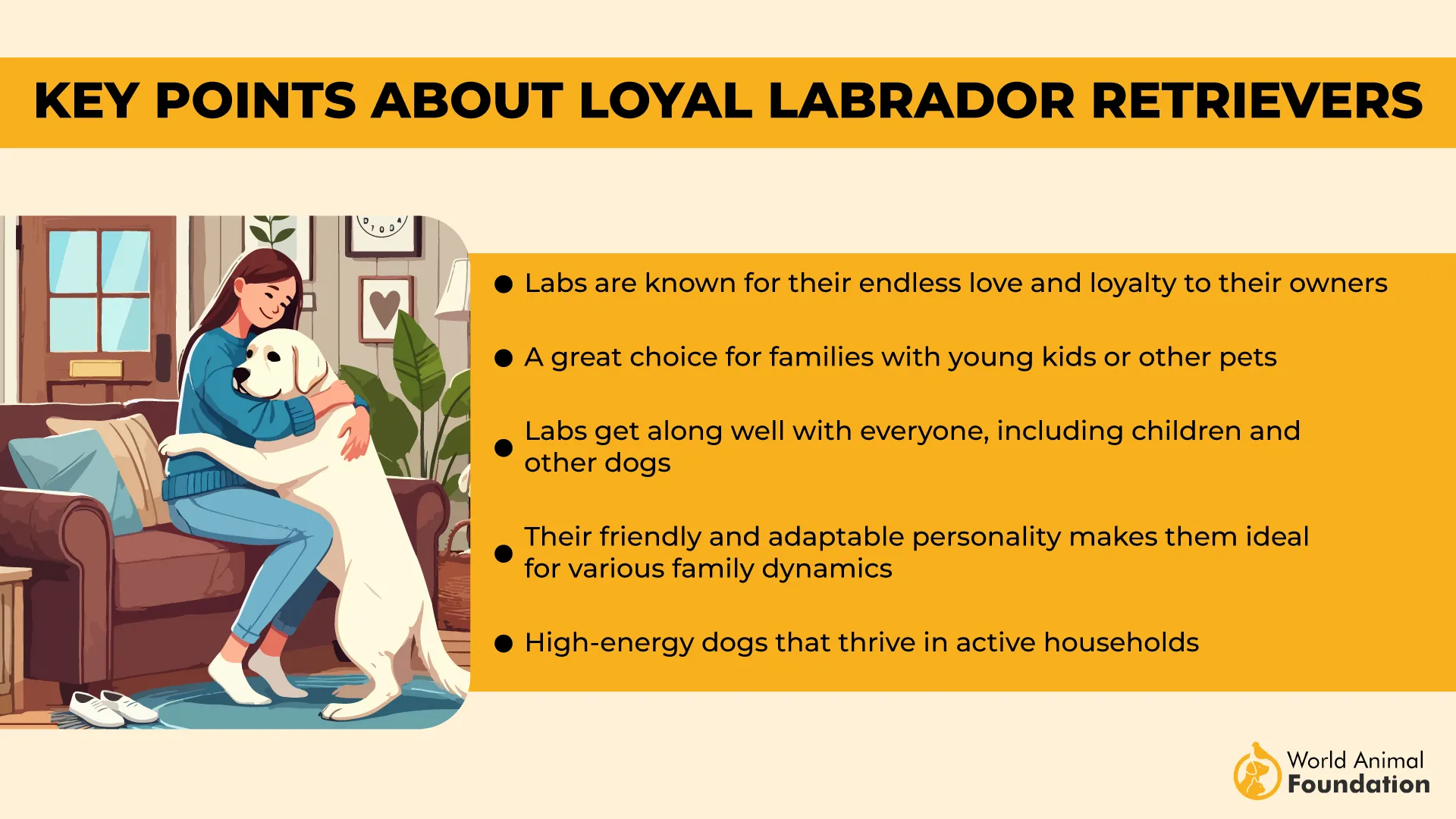
Physically, they do need consistent exercise to burn off energy and maintain a healthy weight, but their mental demands are refreshingly moderate. A daily walk, a bit of playtime, and some interaction with their humans go a long way toward a contented Labrador.
In short, the Labrador Retriever is a great fit for dog lovers who want a smart, adaptable companion without the pressure of constant mental engagement. They bring heart, balance, and a big wagging tail to any home they join..
5. Jack Russell Terrier
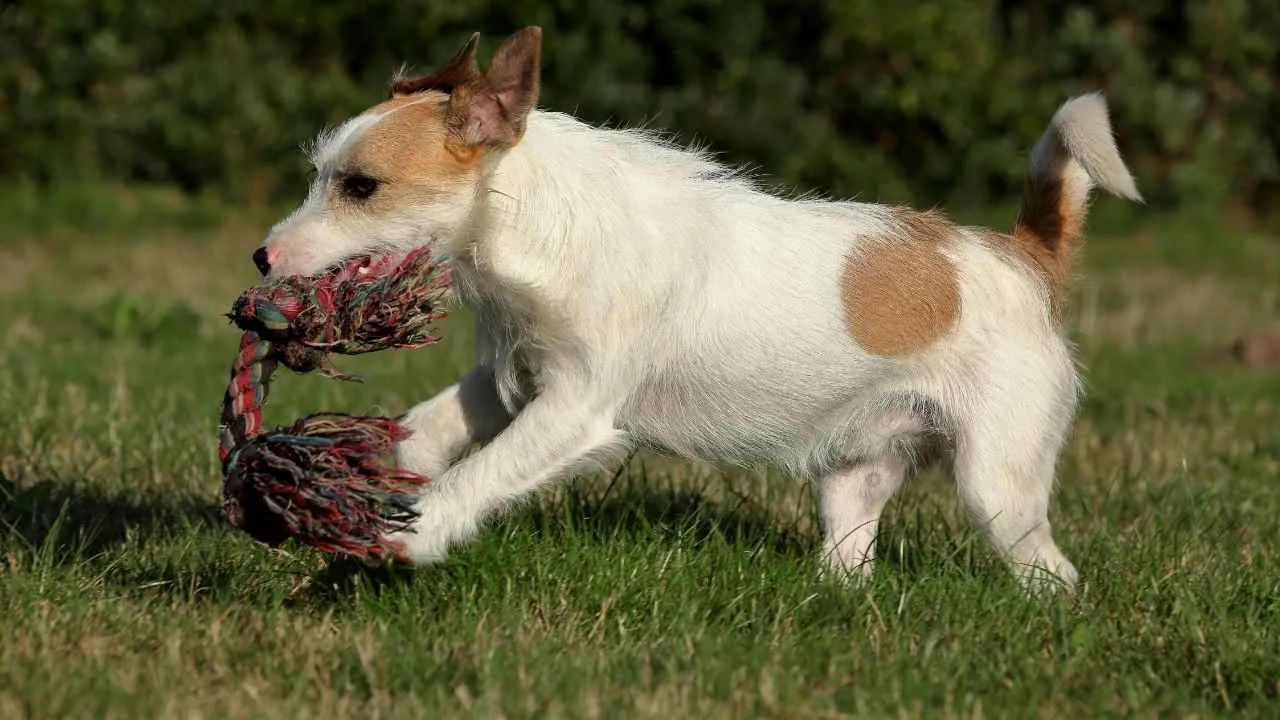
Lively, tenacious, and always up for a challenge, the Jack Russell Terrier is the definition of a canine firecracker. Originally bred for fox hunting, this breed retains its sharp instincts and go-getter attitude. While Jack Russells are famously active, they surprisingly don’t need constant mental stimulation; just the occasional challenge to keep their sharp minds satisfied.
Britannica states that Jack Russells are playful and affectionate. They thrive on variety. Whether it’s chasing a ball, solving a puzzle toy, or learning a new trick, they appreciate bursts of engaging activity rather than endless drills. Their intelligence can be underestimated because they sometimes act on impulse, but when motivated, these terriers quickly master commands and enjoy clever games.
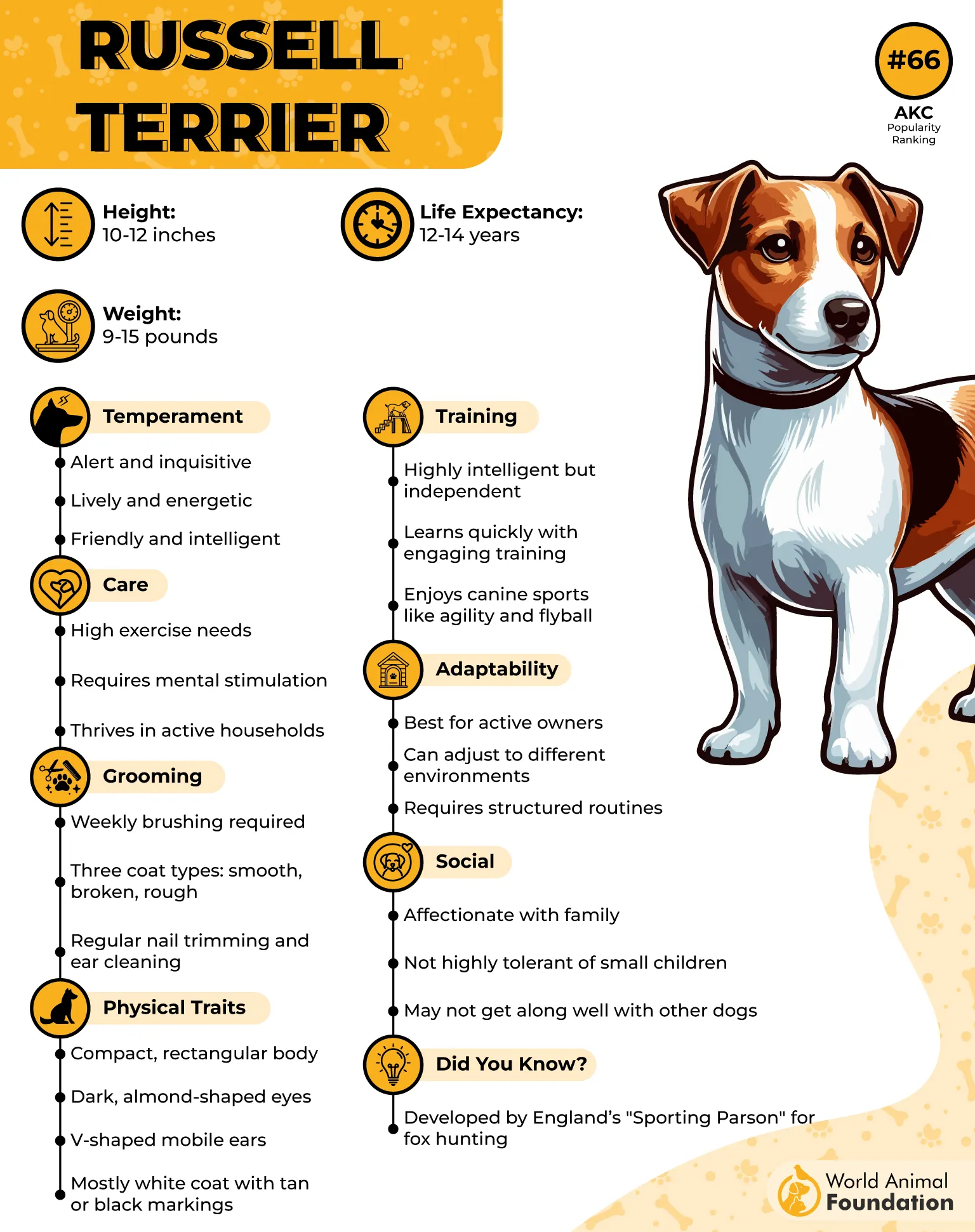
That said, they’re not couch potatoes. These dogs still need regular physical activity to keep their energy in check. They may not demand a daily brain-teaser like a Border Collie, but they do need occasional problem-solving outlets to avoid restlessness and mischief-making.
Their independent streak means they’ll often find ways to entertain themselves, for better or worse. That might include rearranging your backyard or outwitting the baby gate. A smart enrichment session a few times a week goes a long way in satisfying their clever, curious nature.
In short, Jack Russells strike a balance between brains and brawn. They don’t require 24/7 puzzles, but when given purposeful play and opportunities to use their minds, they shine with spirited confidence and joyful energy.
6. German Shorthaired Pointer

With a sleek, athletic build and a versatile skill set, the German Shorthaired Pointer is a breed that blends intelligence with with willingness to please nature, as per the AKC. These dogs are natural-born hunters, originally bred to point and retrieve game across various terrains. While they enjoy mental challenges, they aren’t overly demanding, making them perfect for dog lovers who want a brainy breed that doesn’t need constant stimulation.
This pointer thrives in environments where it can stretch its legs and flex its instincts. Whether it’s a brisk jog, a hike through the woods, or a quick game of fetch in the backyard, this breed stays happiest when it has a task. While they benefit from enrichment toys and occasional puzzle games, they’re also content with well-timed exercise and social interaction.
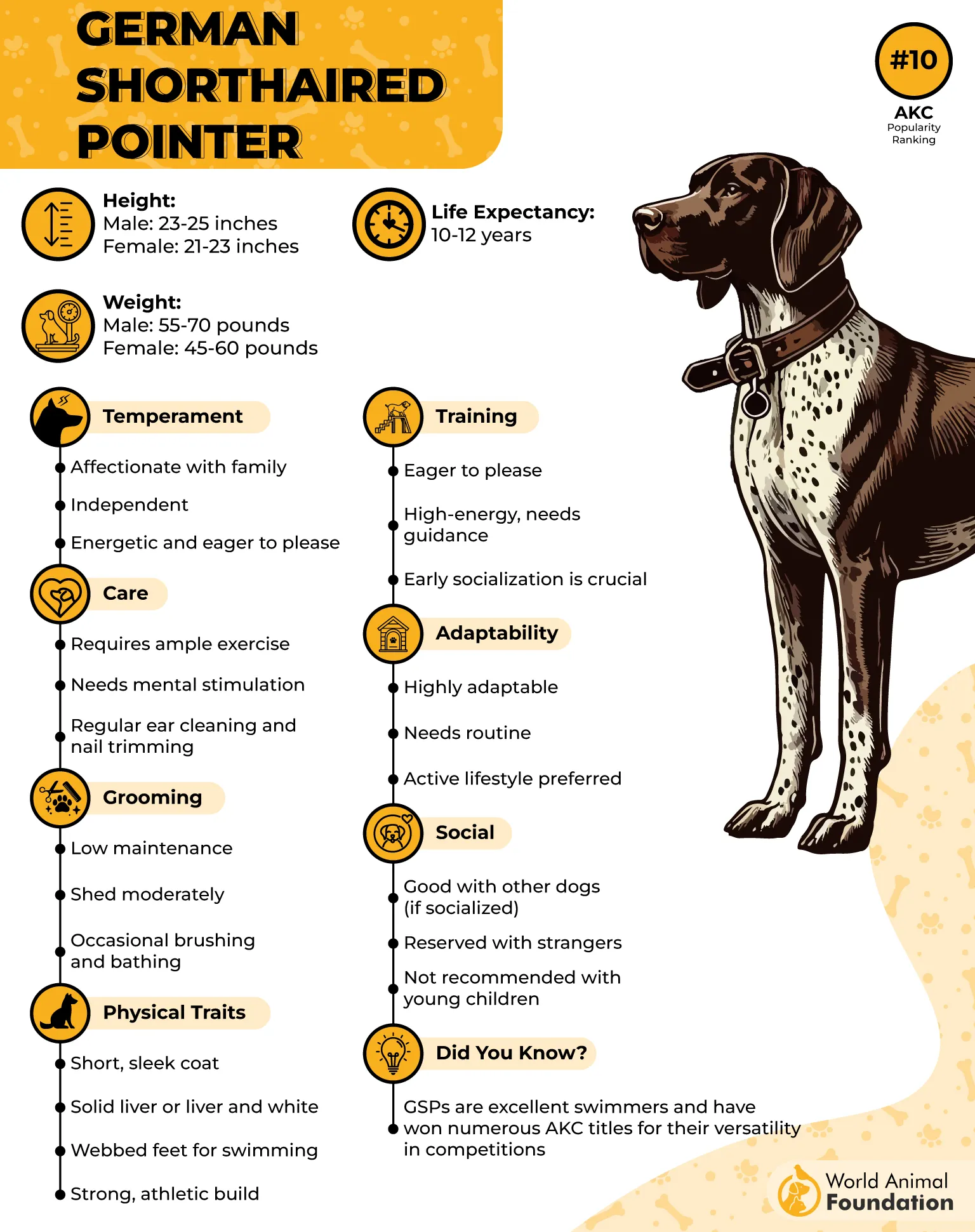
Thanks to their eagerness to please, German Shorthaired Pointers are quite trainable. Positive reinforcement methods bring out their best behavior, and they often enjoy learning new tricks or commands. Just a few short training sessions a week are enough to keep their minds engaged without overwhelming their owners.
Social and outgoing, these dogs typically get along well with children and other pets, especially when properly introduced. They’re affectionate without being clingy and enjoy a balanced routine that offers both structure and freedom.
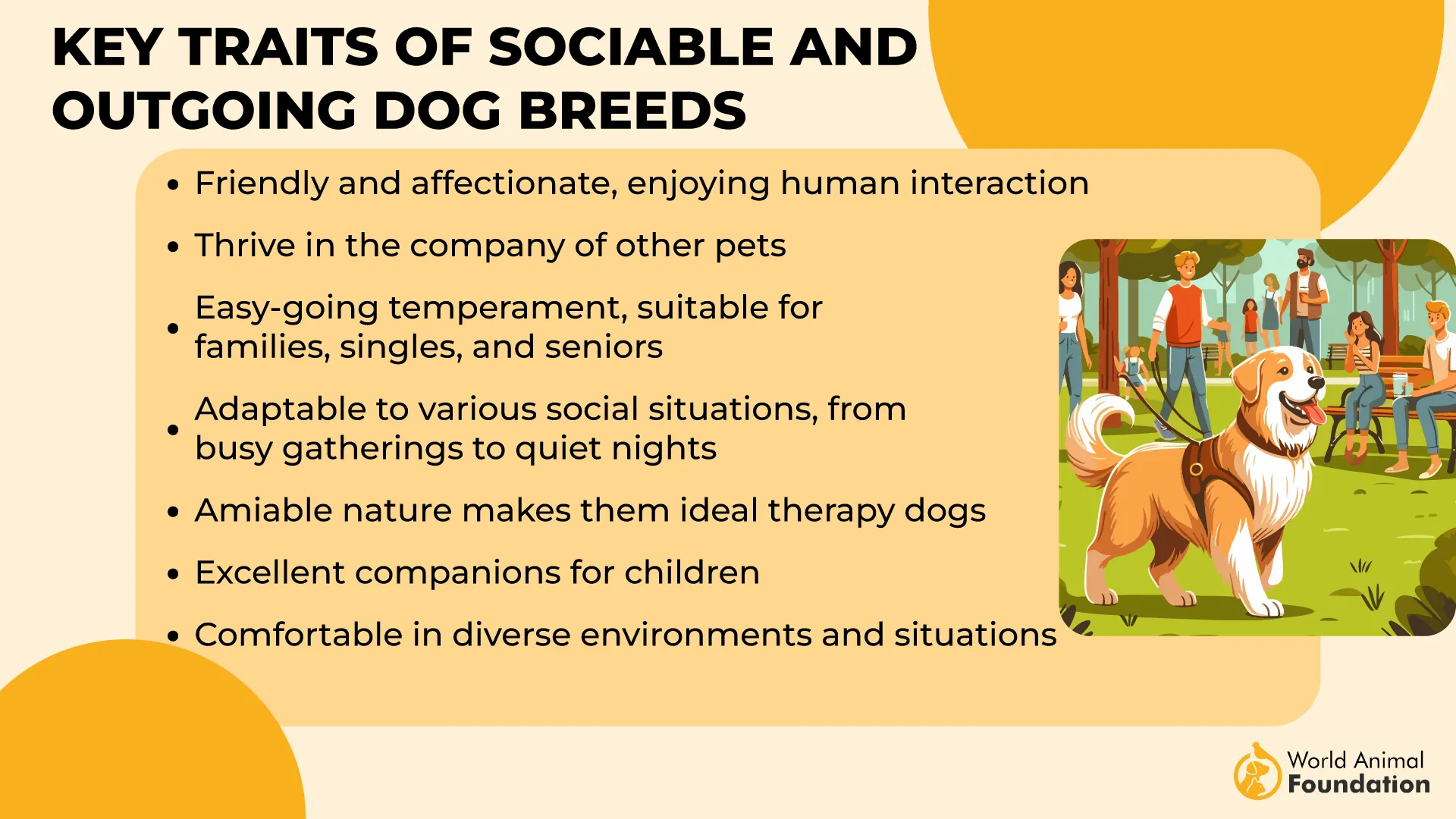
All in all, the German Shorthaired Pointer offers a wonderful mix of energy and ease. While they appreciate mental stimulation now and then, they don’t require constant mental gymnastics to stay content; just a good mix of activity, attention, and affection.
7. Belgian Malinois
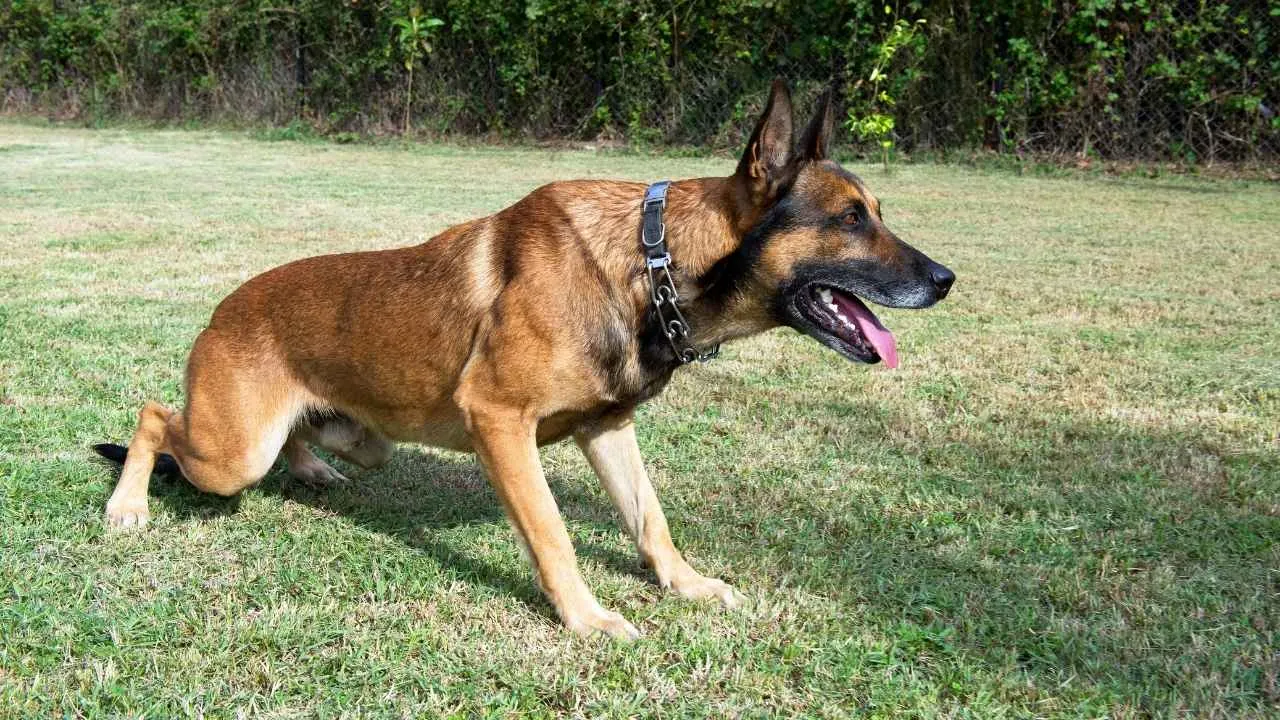
Famed for their unshakable loyalty and razor-sharp intellect, Belgian Malinois are the gold standard of high-functioning working dogs. But don’t let their tough exteriors fool you; underneath that sleek fawn coat and black mask is a dog who craves connection and mental challenge. While they’re always eager to sprint, fetch, and run agility drills, these dogs don’t need round-the-clock stimulation. Instead, occasional but intense mental engagement keeps them balanced and focused.
This breed thrives when it has a job to do, whether it’s scent tracking, obedience, or herding. They’re lightning-fast learners, capable of picking up complex tasks with surprising ease. Puzzle toys, interactive training, or structured games like hide-and-seek give them the mental workout they love. Without such outlets, however, boredom creeps in fast, and you might find your Malinois “redecorating” the living room.
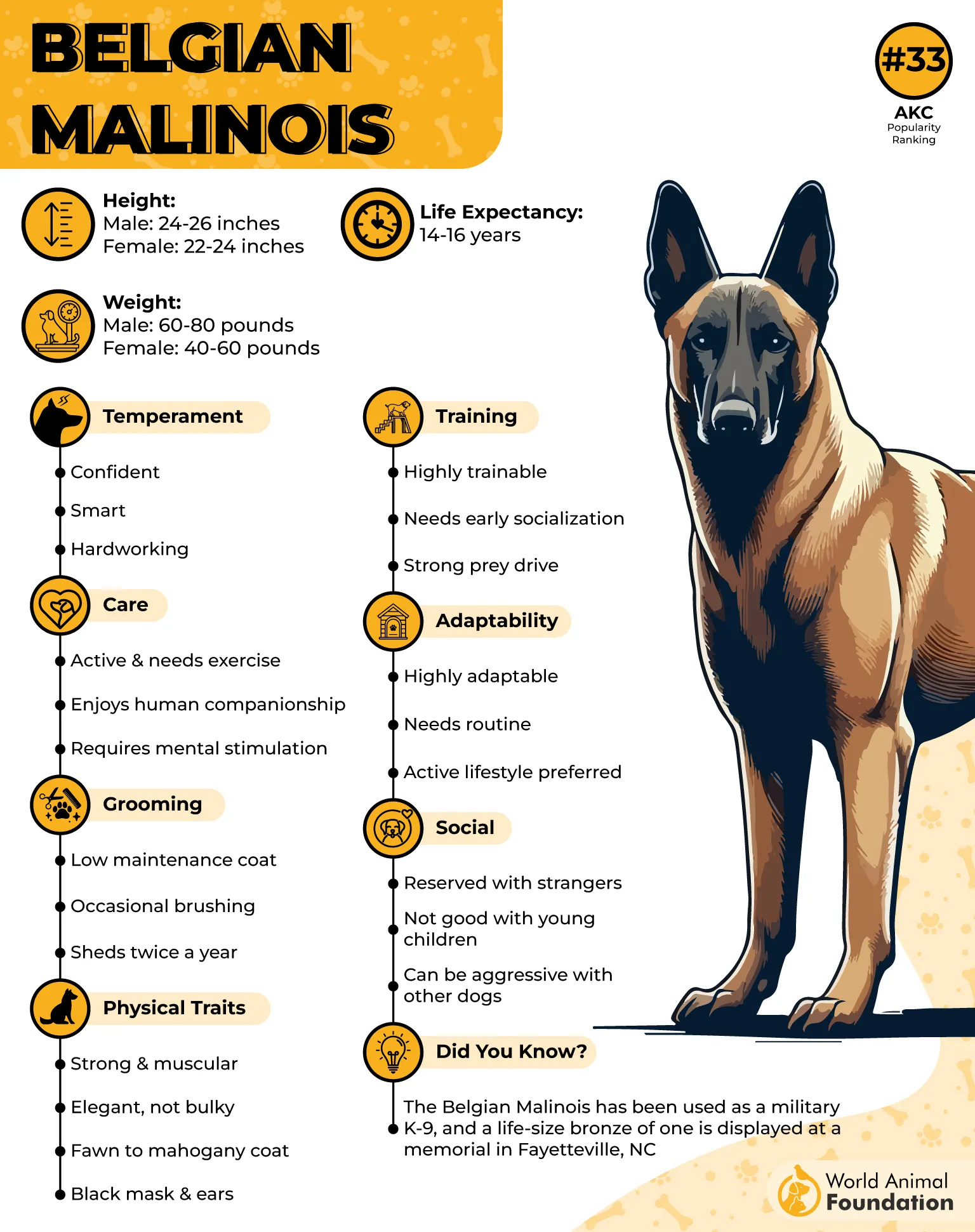
That said, they’re not for the faint of heart. Belgian Malinois need firm but positive guidance and benefit from early socialization. A professional trainer familiar with the breed is often a wise investment for first-time owners. Their high prey drive and herding instincts also mean close supervision around small pets and children is essential.
Despite their intensity, Malinois form deep bonds with their humans and thrive on companionship. They’re happiest when included in your daily life, not sidelined in the backyard. Occasional bursts of purposeful engagement can satisfy their mental needs and transform them into devoted, responsive partners.
For households that love structure, activity, and a touch of challenge, the Belgian Malinois is a powerhouse of potential, ready to excel with just the right amount of stimulation.
Conclusion
Not every dog wants a full-time job, and that’s perfectly okay. The breeds we’ve explored strike a lovely balance: they enjoy bursts of mental activity but aren’t constantly demanding puzzles, tricks, or complex tasks to stay content. Unlike high-energy dogs like the Border Collie, these occasionally engaged companions are ideal for households that want a fun, interactive buddy without the pressure of nonstop stimulation or the demands of various dog sports.
Whether it’s a laid-back pup that perks up for a game of hide-and-seek or a clever canine that enjoys a challenge here and there, these breeds offer flexibility for various lifestyles. They prove that enrichment doesn’t have to mean intensity; it can be as simple as a new toy, a sniffy walk, or a quick brain teaser. While high-energy breeds thrive on constant mental and physical stimulation, these more relaxed yet still energetic dogs might just be your perfect match. After all, sometimes a little mental spark is all it takes to light up your dog’s day, and yours too.


